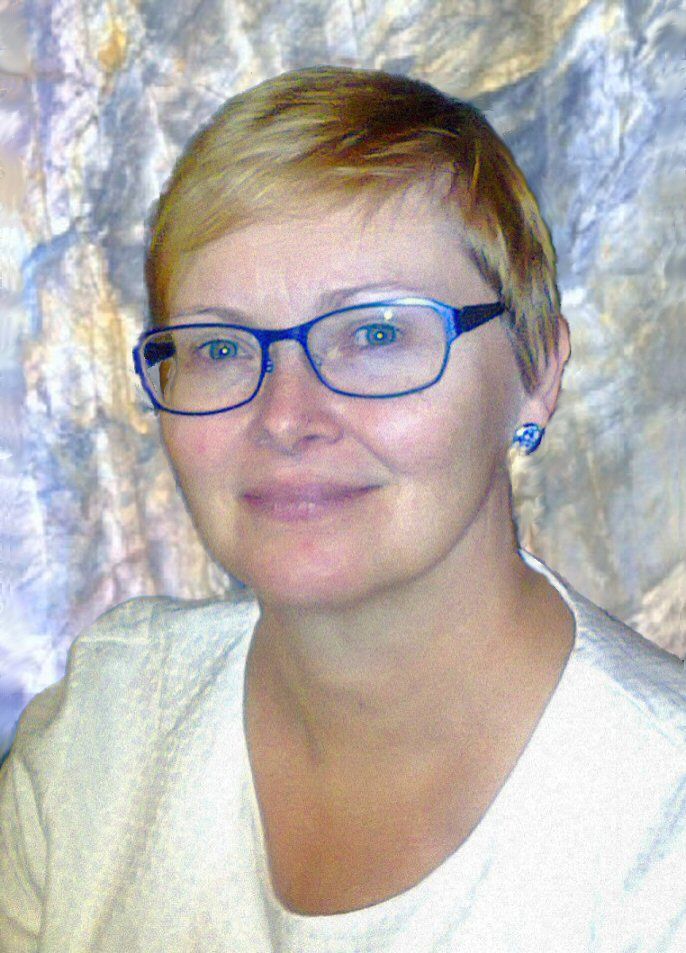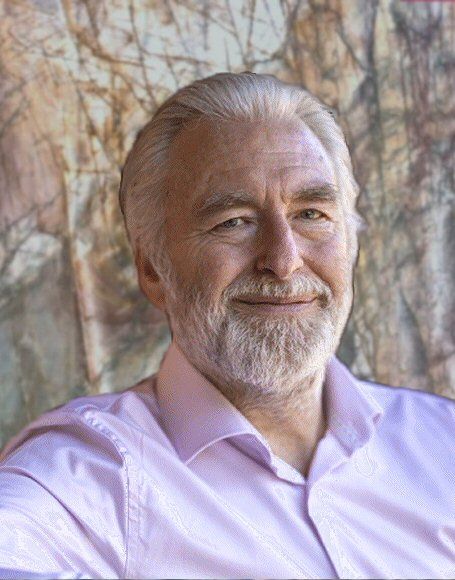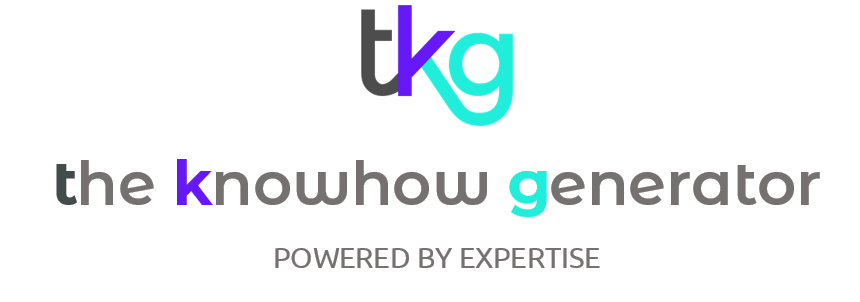
What Aristotle knew about thinking diversity
What can someone who studied in 368 BC teach us about problem-solving in the 21st Century? A lot!
Aristotle identified three distinct types of knowledge, involving three different kinds of thinking. These were:

Techne

Epistme

Phronesis
A recent HBR article highlights one of the lessons we have learned globally during the 2020 pandemic, namely that when we fail to identify what kind
of thinking is required to address a challenge, we end up answering the wrong question.
The 'this is a scientific issue' mindset meant that leaders waited too long to grapple with the escalating social crisis that was also emerging. What if a more holistic approach had been adopted at the outset? What if there was an earlier recognition that not only scientific expertise but also political, ethical and social disciplines were necessary, would we be in a different position today?
Think about your responses to the crises COVID-19 created in your work environment. With the benefit of hindsight, could you have taken a broader perspective, drawn on different types of knowledge and thinking and/or brought in a wider range of perspectives?
What lessons can you take forward as a result?
Vision

JENN BEDLINGTON
Interactions and Thinking and Strategy Expert
Join the hundreds of Jenn’s coaching clients who have achieved more of their potential, becoming more successful leaders and managers, more confident to address challenges and to make changes.
APPROACH
Jenn will use a respectful approach to help you to see challenges in a new light and to uncover new opportunities, while encouraging you to courageously self-reflect and commit to change. She’ll flexibly respond to your emerging needs, and generously share the wisdom built from decades of work and life.
EXPERTISE
Jenn has particular expertise in supporting people become better at:
- leading and managing
- thinking and acting strategically
- interacting with others in ways which build strong and sustainable relationships
- influencing and collaborating
- managing conflict.
ACCREDITATIONS
Jenn is an accredited and widely experienced leadership and personal development coach, with a
stable of profiles she can use to aid in your self-knowledge.
These profiles include:
- Herrmann Brain Dominance Instrument [HBDI]
- Six Seconds emotional intelligence profile and Brain Profile
- Six Seconds Vital Signs
- Trust Styles Inventory
- ResilienceUP
- Motivational Map
- Emotions and Behaviours at Work
- Inventory for Work Attitude and Motivation[iWAM]
- Conflict Dynamics Profile
- Profile of Influencing Styles
Jenn is a member of the International Coach Federation, and abides by its Code of Ethics.
PROFESSIONAL EXPERIENCE
Jenn's professional experience includes –
- twenty years of providing extensive leadership and competency coaching and learning development services in areas including emotional intelligence, thinking, influential communication, collaboration, conflict management, strategic planning, policy development, and program management
- twenty years as a highly respected leader in Government, working with professional, administrative and technical people on a wide range of issues
- twenty years as Director of companies engaged in diverse industries, including retail, manufacturing and professional services.

JENINE BOROWIK
Leadership, IT and Collaboration Expert
Jenine has helped many people to advance their careers, becoming successful leaders, managers, or specialists, both within organizations and with demanding customers.
APPROACH
Jenine will work with you to understand your challenges, explore new ways to operate and assist you to achieve more successful and rewarding work and life.
EXPERTISE
Jenine has particular expertise in
- helping people in technical and IT areas to work effectively with each other and with clients and stakeholders
- working with diverse groups of people from different cultures and countries to achieve common aims
- strategic leadership
- creative problem solving
ACCREDITATIONS
Jenine can draw on her three decades of diverse experience in IT and leadership and management roles, spanning from application development to client relations and technical program leadership to senior executive leadership. She is ready to share her knowledge and skills in assisting clients, IT professionals, and other technical specialists to achieve remarkable outcomes through working effectively together.
Jenine abides by the Code of Ethics of the International Coach Federation.
PROFFESIONAL EXPERIENCE
Jenine’s professional experience includes –
- leading a wide range of successful projects and programs for official statistics
- over 30 years of experience in Information Communications Technology, ranging from technical roles to 5 years as Chief Information Officer for a major government agency,
- leading the data collection and information and client services functions for a national statistics institution
- leading and coordinating international projects involving multiple countries and experts from diverse subject, statistical and ICT fields.
- Volunteer community work, including coaching seniors in the use of technology and mentoring young women to live confidently.

SALLY DOOLEY
Leadership, Mindset and Communication Expert
Sally is passionate about excellent leadership and helping shape cultures that facilitate high performance and wellbeing for sustainable growth. She works alongside clients to support them as they navigate changing contexts and the demands of leadership.
Approach
Sally is a highly skilled and effective leadership coach who combines best practice with holistic and creative processes to help clients accelerate their effectiveness as leaders and across all facets of their lives. Her experience working with clients in a range of contexts, combined with her academic and personal research, uniquely positions her to help clients achieve the outcomes they want.
Sally is also a TEDx speaker coach who works with individuals to craft and communicate strategic narratives.
Expertise
Sally has particular expertise in supporting people to become better at:
- leading, coaching and managing others
- career planning and development
- building resilience and growing through adversity and failure
- leading people through change
- building high performing teams, including creating positive cultures and having effective feedback conversations
Accreditations
Sally is a well-qualified leadership and personal development coach with a range of profiles to enhance self-awareness. These profiles include:
- Masters Training and Development
- Herrmann Brain Dominance Instrument [HBDI]
- Six Seconds Emotional Intelligence Profile
- DiSC and DiSC Work of Leaders
- Entrepreneurial Mindset Profile
- Motivational Maps
- Team Management System
- Myers-Briggs Type Indicator [MBTI]
- Full Circle 360
- Hogan 360
Sally has attended International Coaching Federation accredited courses and abides by its Code of Ethics.
Professional experience
Sally’s professional experience includes –
- 15 years of coaching leaders in government, private and not-for-profit sectors, including senior executive leaders.
- Over 25 years of designing and leading facilitation processes, including leadership, change management, strategic planning and stakeholder engagement, building high-performing teams, emotionally intelligent communication, resilience and wellbeing.
- Over 15 years leading teams in government and not-for-profit sectors, development, and program management

PHIL GOULDSON
Strategy, Leadership and Well-being Expert
Phil has decades of experience in coaching people, helping them build their skills in leadership and management, personal effectiveness, and well-being.
- Be better and more enabling leaders
- Be more strategic
- Be more collaborative and constructive in their working relationships
- Build self-confidence
- Build successful teams
- Over two decades of coaching thousands of Australian and international executives (including Singapore and Christmas and Cocos/Keeling Islands, and managers in the private, not-for-profit, and public sectors, across a diverse range of competencies
- Successful nurturing of capabilities in workshops and webinars
- Strategic work with organisations to develop better teamwork and more strategic planning and working
- Two decades of experience as a senior executive in the health, community services, corrections, and property and resource management sectors.

ROBYN BICKET
Strategic Thinking, Well-being and Collaboration Expert
Join Robyn’s coaching clients achieving more, becoming more successful leaders and managers,
more confident to address challenges and to make changes through self-awareness and positive
psychology.
Approach
Robyn’s coaching approach is based on positive psychology principles and strengths-based analysis
to encourage self-knowledge and to build clients ability to thrive not just survive. Robyn has a
particular interest and experience in the psychology and wellbeing of lawyers and helping women in
career development and transitions.
Expertise
Robyn has particular expertise in supporting people become better at
- Ethical leadership
- thinking and acting strategically
- interacting with others in ways which build strong and sustainable relationships
- influencing and collaborating
- career and life transitions.
Accreditations
Robyn is a certified positive psychology and positive psychology coaching practitioner from the
Whole Being Institute (USA) and an experienced leadership and personal development coach.
Robyn is an accredited Herman Brain Dominance Instrument (HBDI) practitioner, member of the
Positive Psychology.com community and the VIA Institute on Character.
Robyn is a lawyer admitted as a barrister and solicitor in the Australian Capital Territory. She holds a
BA (Hons) (Political Science) and an LLB from the Australian National University.
Robyn is an alumnus of the Cranlana Programme and a participant in the Australian National Library
Trailblazing Women in the Law oral history project.
Professional experience
Robyn’s professional experience includes –
- ten years of providing leadership and coaching learning and development services in areas including emotional intelligence, thinking, influential communication, collaboration, , strategic planning, policy development, program management and transition to executive roles.
- twenty years as a highly respected leader in Government, working with professional, administrative and technical people on a wide range of issues including leadership of two large in-house legal teams (chief counsel) and representation of Australian government internationally.
- eight years’ experience providing consulting services on public sector legal policy
issues including health regulation, justice system reform, privacy and information
management and social policy.

IAN HIGGINBOTTOM
Leadership, Management and Collaboration Expert
Ian is committed to positively perturbing the thinking of managers and senior executives, empowering them to cultivate highly effective working relationships, foster high-performing teams, and nurture cultures of well-being where people thrive.
Approach
Ian employs a respectful and permission-based approach to help you elevate your self-awareness, get fresh perspectives on challenges, generate new possibilities, and drive action that yields new results. He specialises in helping you develop the conversational competencies essential for effective collaboration, management, and leadership. He will draw from his extensive experience as a business leader, executive, and community developer, as well as his fourteen years of coaching experience to serve your learning and growth.
Expertise
Ian's areas of expertise include helping people to:
- Build leadership, management, and collaboration skills.
- Develop an effective leadership presence.
- Get work delivered without surprises by making and managing commitments.
- Build high-quality working relationships and have ‘difficult’ conversations.
- Cultivate self-confidence and manage self-doubt.
Accreditations
Ian is a Professional Certified Coach (PCC) with the International Coaching Federation. He has a Graduate Diploma in Ontological coaching and certifications from the Institute for Generative Leadership in Coaching Excellence in Organisations. He is also a trained conflict coach.
Professional experience
Ian’s diverse professional experience includes –
- Fourteen years of coaching executives and managers in government departments and corporations in leadership, collaboration, influential communication nd conflict resolution. He has delivered leadership and collaboration training workshops to executive teams, and productivity and efficiency training to senior executives.
- Ian embarked on his career as an introverted scientist before founding a cooperative housing development and a successful software start-up that is now a global leader in a scientific niche. Under Ian's leadership, the company evolved from a three-associate team to a venture capital partnership with a staff of sixty.
- Ian has a background in science and worked for fifteen years as a scientist with the Australian Antarctic Division and CSIRO.
Session Length Guidance
SESSION LENGTH
WHEN TO CONSIDER
When you want to check whether you feel comfortable with coaching or a particular coach before embarking on a longer term program of coaching.
When you have an ongoing program of sessions that are reasonably close together, so that you can focus on one aspect at a time without losing momentum.
When you want to explore strategies in depth and ensure you have the skills to put them into practice.
When you are faced with the need to take a major decision, need a significant breakthrough or make substantial change in your behaviour and approach.
SELF AWARENESS
Through understanding of our own preferred thinking styles shows us:
- How we could leverage our cognitive strengths.
- Blind spots in our thinking where we might need other thinking approaches
- How we can more effectively communicate and influence people with different thinking styles
- How the way we think could be limiting our ability to make the best decisions
profile description
The HBDI® reveals our unique thinking preferences across four domains – Analytical, Practical, Relational, and Experimental. Through highlighting individual cognitive diversity, it aids in personal and team development.
team awareness
profile description
- Predictive Power: SEI predicts over 54% of key success factors such as effectiveness, relationships, quality of life, and health.
- Practical Framework: Offers a process framework to apply EQ in real-life situations.
- Global Relevance: Used in over 150 countries, it caters to a broad range of training, coaching, and development needs.
- Robust Psychometrics: The assessment is well-validated and reliable, ensuring accurate measurement of EQ.
- Action-Oriented: Equips individuals with strategies to use and improve their EQ skills for long-term transformation.
- Comprehensive System: Includes various tools and reports for different needs, from leadership to youth assessments.
- Real-World Practicality: Links EQ to important work and life outcomes, making it relevant and actionable
- Customizable Reports: Offers a range of reports tailored to individual and group development needs.
- Multi-Rater Feedback: The SEI 360 provides in-depth feedback on how one’s EQ impacts others.
SELF AWARENESS
The benefits of an individual SEI profile include:
- Enhanced Self-Understanding: Helps individuals understand their own thoughts, feelings, and actions
- Emotional Literacy: Assists in accurately identifying and interpreting both simple and compound feelings
- Personal Growth: Provides a framework for personal development and conscious living
- Insightful Feedback: Offers new insights which are key to unlocking one’s capacity for leading oneself
Individual profiles can be tailored to different perspectives, eg Leadership or Development.
team awareness
- Improved Team Dynamics: Equips leaders with a practical roadmap for developing team EQ competencies
- Predictive Analytics: Predicts key success factors like effectiveness, relationships, quality of life, and health
- Strategic Development: Supports long-term transformation with an action-oriented framework to improve EQ skills
- Comprehensive Assessments: Includes specialized questionnaires for various organizational needs, such as sales and change
profile description
SELF AWARENESS
For an individual, their Motivational Map can:
- Help individuals make informed career decisions
- Provide insights into how motivation is likely to change over time
- Reveal how well an individual’s current role fulfills their core and career drivers
- Aid in the development of leadership and coaching skills
- Contribute to greater fulfillment from work and life
- Support stress reduction and enhance well-being
- Assist in addressing work-life balance concerns
team awareness
- Create a highly motivated and energised environment where leaders are motivationally intelligent and teams are purposeful
- Provide a foundation for measuring motivation and developing strategies to maintain high levels of motivation and energy long-term
- Offer insights into team dynamics and help in aligning team energies with organisational mission and values
profile description
- changes in individual attitudes and skills
- improvements in the way the team works together in an emotionally intelligent way that quickly identifies and resolves conflict
- a climate – the lived experience of people in the team – that is focused on wellbeing, where thriving language and priorities are evident
Additionally, it assesses eight Performance Indicators.
SELF AWARENESS
For the individual, the ResilienceUP profile:
- Enhances understanding of personal resilience and early warning signs of compromised resilience
- Provides a framework for actionable steps to improve resilience
- Encourages introspection and reflection on personal strengths and areas of opportunity
- Aids in developing strategies to prepare for, recover from, and adapt to stress or challenges.
team awareness
- Promotes a culture of resilience, agility, and adaptability within teams and the organisation
- Helps identify and act upon opportunities for growth and development during challenges
- Supports strategic human resource management, including recruitment, onboarding, and employee development
- Facilitates team discussions on resilience and future-fit strategies
profile description
SELF AWARENESS
The Trust Style Inventory:
- Enhances understanding of one’s own trust tendencies
- Provides insights into how trust can be developed and leveraged
- Helps identify personal strengths and areas for growth in trust-building
- Encourages reflection on past experiences to improve future trust interactions
team awareness
- Fostering a culture of trust within teams and the wider organisation.
- Improving collaboration by highlighting the importance of trust between team members.
- Assisting in identifying trust-related barriers that may impact team performance.
- Supporting the development of strategies to address and resolve trust issues within teams.
SELF AWARENESS
The EMP feedback report:
- Measures personality characteristics and motivations, and cognitive and behavioural traits that are critical to entrepreneurial success whether you are operating your own business or working within an organisation
- Provides self-awareness on how these factors impact their entrepreneurial capability
- Encourages reflection and the development of practical strategies to improve entrepreneurial thinking and action-taking
- Helps participants synthesise their results and generate a plan to leverage existing strengths and/or enhance skill sets.
team awareness
- Helps leaders to understand the personality characteristics and motivations as well as the cognitive and behavioural traits needed to build entrepreneurial capability in teams and organisations.
- Supports leaders by providing practical strategies and tools for building entrepreneurial capability
profile description
profile description
The HBDI® reveals our unique thinking preferences across four domains – Analytical, Practical, Relational, and Experimental. Through highlighting individual cognitive diversity, it aids in personal and team development.
SELF AWARENESS
Benefits of the Conflict Dynamics Profile for Self-Awareness:
- Enhances self-awareness of one’s conflict behaviours.
- Identifies constructive and destructive behaviours during conflicts.
- Recognizes personal “hot buttons” that may escalate conflicts.
- Encourages reflection on emotional responses to conflict
- Provides a framework for improving conflict management skills
team awareness
- Facilitates understanding of team conflict behaviours and responses
- Offers a common language to describe and measure approaches to workplace conflict
- Supports the development of orientation programs that align with organizational norms
- Enables teams to identify behaviors that trigger irritation among members
- Assists in coaching by focusing on conflict patterns and providing norm group comparisons
Managers Dashboard
The Six Seconds Managers Dash board is a one-page analysis tool that offers a concise summary of a group’s emotional intelligence (EQ) style, top talents, and their impact on performance. It’s grounded in neuroscience and 15 years of EQ research, providing practical insights into a team’s dynamics.
The Manager can use the tool in working with the development of their people to:
- Enhance understanding of each person’s emotional strengths and challenges
- Identify personal EQ talents and areas for development
- Encourage reflection on how individual EQ impacts personal effectiveness, relationships, and decision-making
- Aid in aligning personal choices with long-term objectives
The Manager’s Dashboard:
- Offers a snapshot of the team’s overall EQ, facilitating strategic workforce planning and coaching
- Provides insights into the distribution of Brain Styles and Brain Talents within a team, aiding in team formation and development
- Helps in identifying collective strengths and opportunities for growth, contributing to improved team performance
- Assists in understanding the coherence within the team, which can inform leadership and management strategies
Vital Signs
Utilising the Vital Signs profile:
- Enhances self-awareness on how their own beliefs, attitudes and behaviours impact on the key drivers of performance
- Helps the individual understand their impact on others and on the team’s dynamics, performance and success
- Encourages reflection on personal strengths and areas for growth
The Vital Signs profile:
- Provides a clear framework for understanding team climate and dynamics
- Provides benchmark data for measuring the impact of investment in development
- Helps identify areas for improvement in team performance and collaboration
- Supports leaders in creating a positive organisational climate that drives performance
- Offers insights into how well the organization is aligned with its strategic goals
Choose your Expert Accredited Practitioner
Sally Dooley
About the Accredited Practitioner
Phil Gouldson
About the Accredited Practitioner
Robyn Bicket
About the Accredited Practitioner
